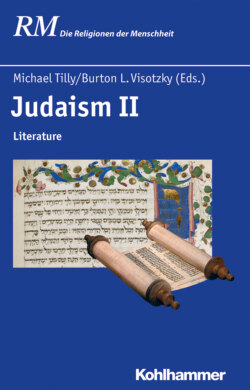Читать книгу Judaism II - Группа авторов - Страница 45
На сайте Литреса книга снята с продажи.
4.1.1 Name and Nature
ОглавлениеThe name of the LXX reflects the tradition that seventy-two elders translated the Torah into Greek (thus Sof 1.7 and parallels, and the Letter of Aristeas, a late first-millennium BCE Jewish wisdom composition that describes the origin of the LXX). In the first centuries CE this tradition was expanded to include all the translated biblical books, and finally it encompassed all the Jewish scriptures translated into Greek as well as several works originally composed in Greek.
The translation of the Torah may reflect an official translation, as narrated in the Letter of Aristeas and Jewish sources, but it was not created by seventy-two individuals as narrated in these sources. The books of the Torah were probably rendered by five different translators. The subsequent biblical books were similarly translated by different individuals, although some of them translated more than one book.
The collective name Septuagint(a) now denotes both the original translation of biblical Hebrew and Aramaic writings into Greek, and the collection of sacred Greek writings in their present, canonical form. Neither usage is completely accurate, since the collection contains original translations, late revisions (recensions) of those translations, and compositions originally written in Greek. For this reason, scholars usually use the term »Septuagint« for the collection of sacred Greek writings and Old Greek (OG) for the reconstructed original translation. The name is often put in quotation marks (»LXX«) when it is necessary to stress the diverse nature of the books included in the collection.
